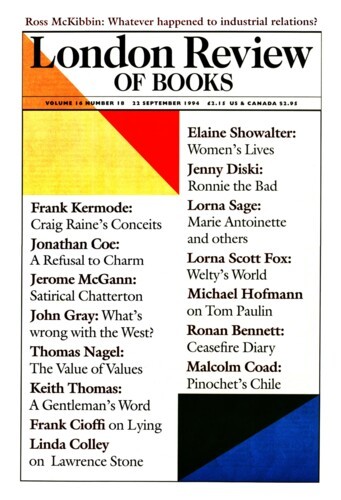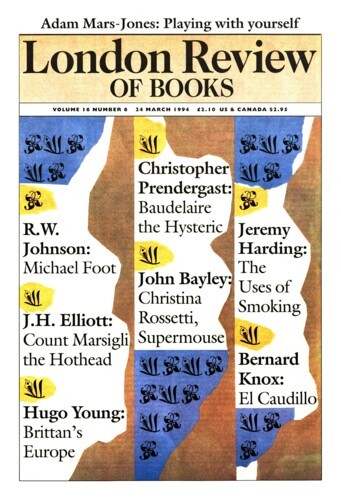Principia Efica
Jonathan Coe, 22 September 1994
Like his near-namesake, Tristram Shandy, the unlikely hero of Peter Carey’s new novel begins the story of his life at the very beginning. While he doesn’t go into quite as much detail about the moment of his conception, he appears to have a very clear memory of the minutes leading up to his delivery. As his mother leaves her theatre (where she has been rehearsing the Scottish Play) and sets out for the hospital,





